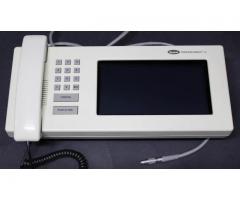Coronavirus transmission: how to protect yourself from coronavirus?
The new covid-19 coronavirus is highly contagious. This explains the speed with which it has spread around the world. However, there are measures to protect against it and thus control the spread of the epidemic.
What is coronavirus?
Coronaviruses covid-19 are a family of viruses that can be pathogenic for humans and animals. In humans, several coronaviruses can cause more or less serious respiratory infections. These range from the common cold to more serious conditions like Middle East Respiratory Syndrome (MERS) and Severe Acute Respiratory Syndrome (SARS).
On January 9, 2020, a new coronavirus was discovered in China, in the city of Wuhan. It is SARS-Cov2, responsible for coronavirus disease 2019 (Covid-19). The first man to contract Covid-19 was reportedly contaminated by an animal because SARS-Cov2 is similar to a virus already identified in a bat. The animal responsible for transmission to humans has not been confirmed. However, several studies mention the pangolin as an intermediate host between the bat and humans, a small mammal eaten in southern China.

Coronavirus transmission
Coronavirus symptoms are manifested by:
- fever ;
- cough and sore throat;
- respiratory discomfort;
- headaches ;
- fatigue
It is transmitted from human to human by the projection of contaminated droplets (saliva, nasal secretions) when the person coughs or sneezes, and by a prolonged face to face (at least 15 minutes) with a person located less than a meter from you. The Institut Pasteur recalls that “in the absence of control and prevention measures, each patient infects between 2 and 3 people”.
There are still many misconceptions about the means of transmission. It is therefore important to remember that covid-19 is not transmitted by Chinese food , packages from China, money or even mosquitoes.
Protect yourself from covid-19
In the absence of control and protection measures, the risk of contamination of the coronavirus from one person to another is significant.
It is possible to reduce this risk through simple actions:
- wash your hands very regularly with soap and water or a hydroalcoholic solution. Washing kills the virus if it is on your hands.
- cough or sneeze into your elbow or into a disposable tissue.
- use only disposable tissues that you throw in the trash after use.
- stop shaking hands and kissing to greet others.
- do not put your hands to your mouth, nose or eyes. If the virus is on your hands, it can enter your body through these holes.
stand more than a meter from a person who coughs or sneezes If you are standing less than a meter away, you can inhale the droplets containing the virus (if the person is a carrier).
Stay at home in the presence of symptoms characteristic of covid-19.
Find out about the regions where the virus is actively circulating and avoid going there.
If someone you know is infected, avoid being around them during their quarantine period. If you have been in contact with him, stay confined to your home for 14 days as well as the people with whom you have been in contact yourself.
Comments
Post a Comment